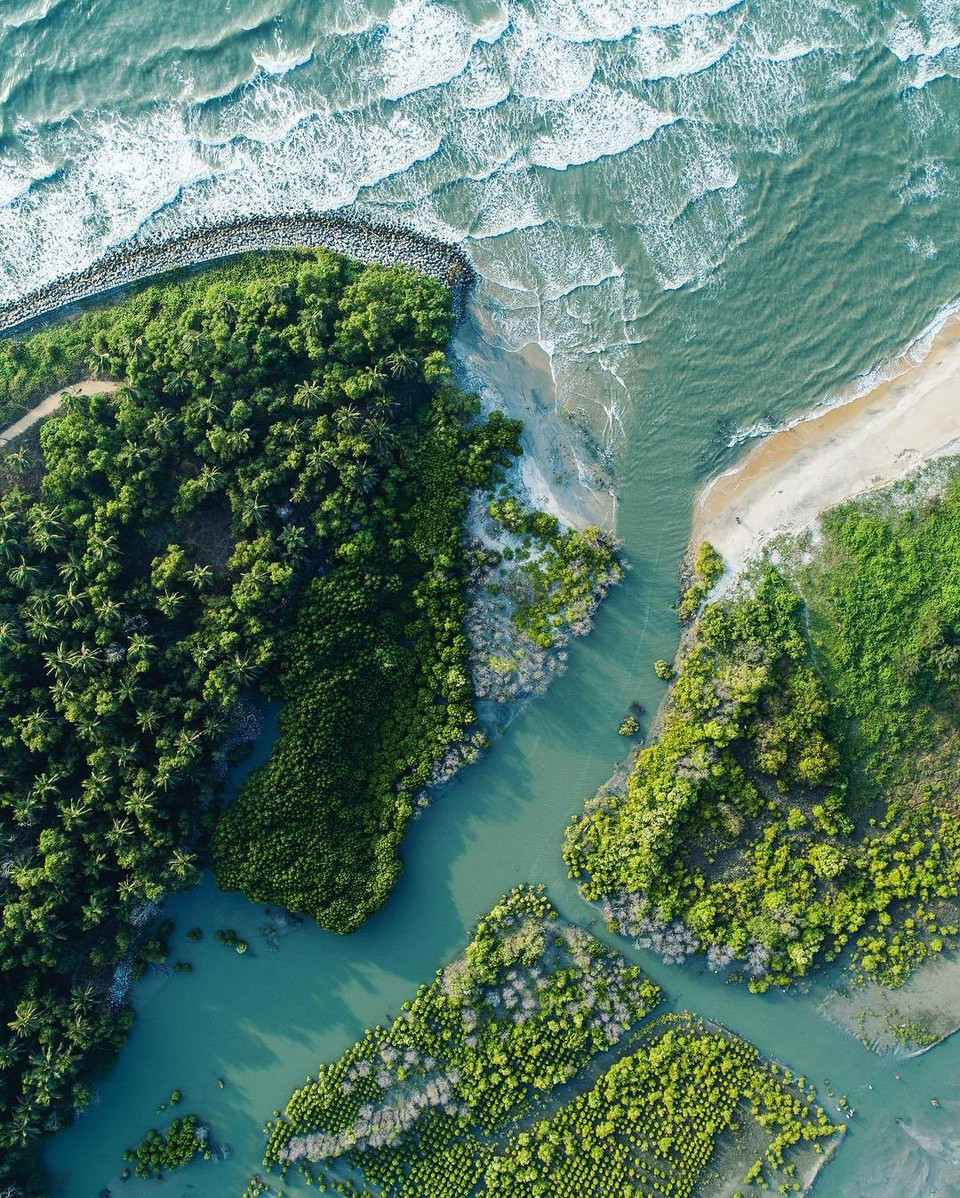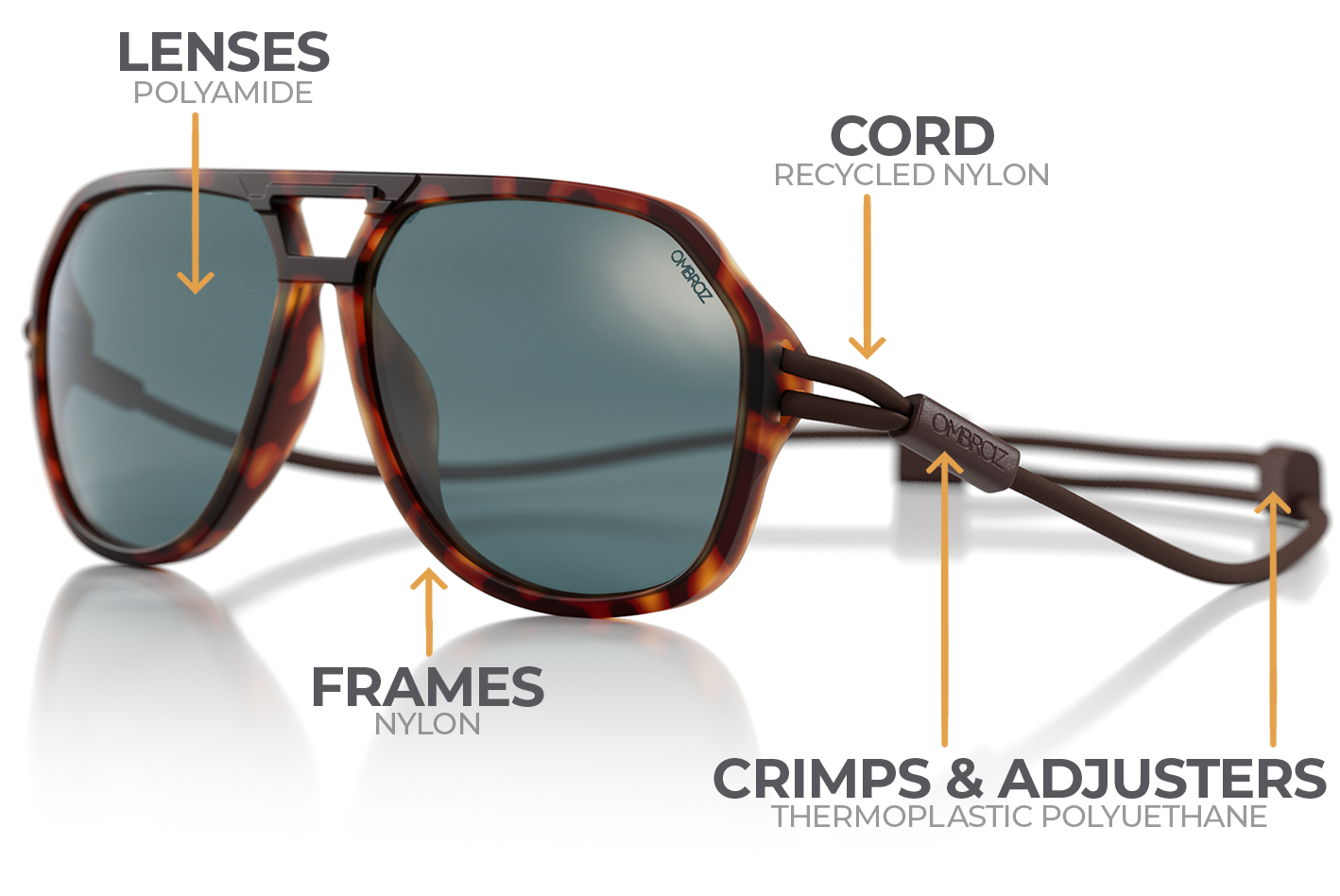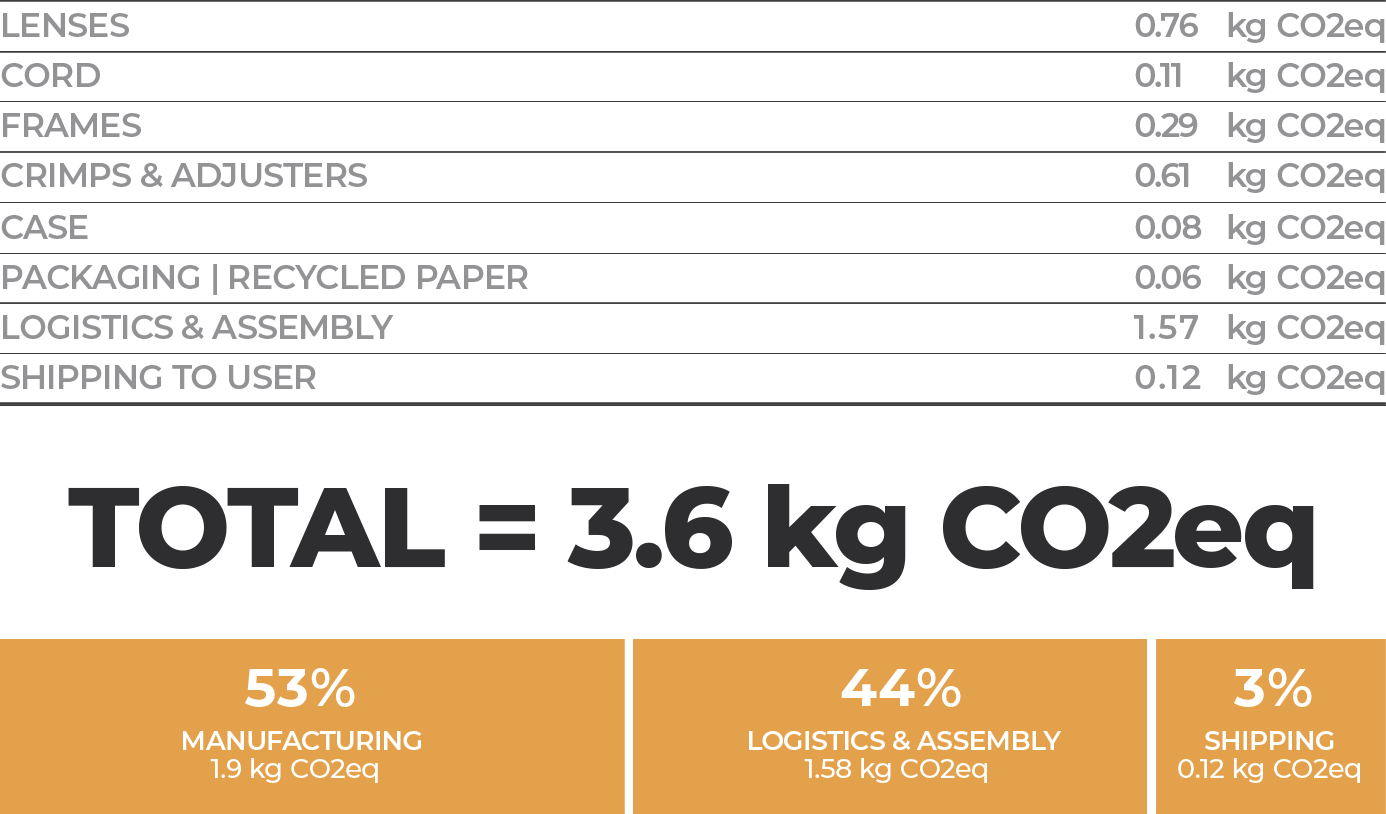
NET-BENEFIT IMPACT

OMBRA n.
'SHADE' IN ITALIAN


HOW DO WE DELIVER A NET-BENEFIT IMPACT?
WE PLANT 20 MANGROVE TREES
FOR EVERY PAIR OF OMBRAZ WE SELL
6,168 kg (total carbon stored by 20 mangrove trees over a 20-year period) / 3.60 kg (total carbon emitted to deliver Ombraz to your doorstep) = 1,713X
1,713X more carbon is sequestered than emitted to produce and deliver each pair.
Who plants our trees?
We work alongside ARC Restoration, a non-profit tree-planting organization that employs indigenous locals to regenerate and protect native forests. We focus our tree planting in Madagascar - where many coastal mangrove forests have been destroyed. When you purchase a pair of Ombraz, or an Ombraz accessory, we donate a portion of that revenue to ARC, who plants the mangrove trees on our behalf.
Why Mangrove Trees?
No other tree on earth provides more environmental and socioeconomic benefits than mangrove trees. The number one reason we choose to plant mangrove trees is their remarkable carbon sequestration abilities.
- Carbon Storage: Mangrove forests are the most carbon-dense ecosystems in the world, and if kept undisturbed, mangrove forests act as long-term carbon sinks. Mangrove forests store up to 10X more carbon per hectare than terrestrial forests.
- Coastal Protection: Mangroves serve as a natural buffer between marine and terrestrial communities. Their extensive root systems stabilize coastlines, reduce coastal soil erosion, and minimize the impact of flooding during storm surges.
- Water Quality Improvement: Mangroves filter pollutants from runoff and improve water quality. They trap sediment and remove excess nutrients, which also helps protect coral reefs and other sensitive marine ecosystems nearby.
- Biodiversity Hotspots: Mangrove ecosystems serve as nurseries and habitats for a wide variety of marine and terrestrial species. Fish, crustaceans, birds, and other wildlife, breed and spawn in mangrove habitats. An estimated 80% of the global fish catch relies on mangrove forests directly or indirectly.
- Indigenous Livelihoods: Many coastal communities depend on mangroves for their livelihoods. They provide a source of food (fish and shellfish), protect from storm surges, and purify coastal waters.
Why Greenticket?
We couldn’t just claim to be the most carbon-negative product in the world
without third-party verification. Imperative to the process
was calculating the carbon emissions across our entire supply
chain from production to doorstep delivery.
Enter Greenticket, a carbon measurement firm in Chile that
specializes in dissecting and calculating the carbon
impact of consumer products. Greenticket interviewed and
audited each manufacturer, of every component in our business.
They accounted for material extraction, processing,
energy consumption, manufacturing and transportation
to establish a clear picture of Ombraz’ carbon footprint.
From there, Greenticket measured the carbon sequestered
by 20 mangrove trees over a 20-year lifecycle.
Looking Ahead
We recognize our product is made primarily of petro-synthetic plastics,
and while some of our components are recycled, by no means
are we claiming that our product itself is environmentally conscious.
Our long-term goal involves developing 100% fully recycled,
biodegradable, and optimized components.
We are also currently transitioning our production
to workshops that operate fully on wind and solar energy.
2,027,955
TREES PLANTED COUNTING
CITATIONS
Conservation International. "To Protect Mangroves, the Secret Is in the Soil: 3 Stories You May Have Missed". https://www.conservation.org/blog/to-protect-mangroves-the-secret-is-in-the-soil-3-stories-you-may-have-missed?utm_campaign=later-linkinbio-mangroveactionproject&utm_content=later-23836038&utm_medium=social&utm_source=linkin.bio
Mangrove Action Project. "Photography." https://www.photography.mangroveactionproject.org/
The Ocean Agency. [Insert specific title or description if available], https://www.theoceanagency.org/search-result?img=YIl-GhIAACQAzN9s
11th Hour Racing. "11th Hour Racing and The Ocean Agency Collaborate to Inspire with Stunning Ocean Content." https://11thhourracing.org/11th-hour-racing-and-the-ocean-agency-collaborate-to-inspire-with-stunning-ocean-content/
Conservation International. "Share the Facts About Mangroves." https://www.conservation.org/act/share-the-facts-about-mangroves
Smithsonian Ocean. "Mangroves." https://ocean.si.edu/ocean-life/plants-algae/mangroves
Encyclopaedia Britannica. "Mangrove." https://www.britannica.com/plant/mangrove






